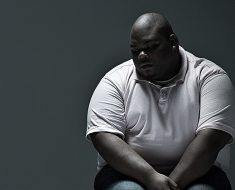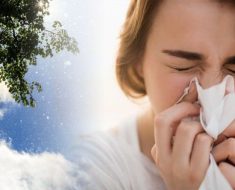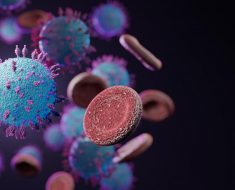Jonathan Rowe, 32, spent over a decade struggling with severe eczema on his face and later the symptoms of topical steroid withdrawal.
Now he’s taking treatment into his own hands by depriving his body of moisture.
Jonathan developed eczema on his face when he was just 18, at which point his doctor gave him a steroid cream. This helped at first, but the painful, cracked skin returned soon after.
Each month he went back to his doctor as his eczema grew worse, and with each visit he was prescribed a stronger steroid cream.
By the time he was 24, Jonathan’s entire body was covered with eczema. Each time he stopped taking steroids, his eczema would come back worse.
Eventually he was put on cyclosporine, an oral immunosuppressant normally used for transplant patients. This made his eczema more manageable, but as long-term use poses the risk of developing cancer, he knew he couldn’t stay on the medication forever. After two years he stopped.

His last-ditch effort was Protopic, a cream that burned his skin for 12 hours, cleared his eczema, but soon saw the return of symptoms.
He knew he needed to find a better solution.
In 2018 Jonathan came across articles discussing topical steroid withdrawal (TSW), and realised that was what he was suffering from. But when he told a dermatologist about his findings, they told him TSW doesn’t exist.
‘I was worried about the possible side effects of cyclosporine, and I had to have regular blood tests to check my liver and kidneys,’ said Jonathan. ‘I really thought a 24-year-old shouldn’t be having this to control their skin.


‘I was the one who pushed to come off as I wasn’t comfortable taking it due to the possible side effects. I was told there was a risk of getting cancer from this medication.
‘When I came off, the dermatologist told me that he would let me manage my skin.
‘I realised that using the creams wasn’t a long-term solution, so I knew that something else had to be done. I was worried I would have to go back on cyclosporine, which had the cancer risk.
‘I realised I was addicted to steroids and Protopic and if I stopped using the creams then my skin would flare out of control.
‘The symptoms for TSW are flaking skin, fluid oozing from skin, blisters, swelling, irritated eyes, hair loss, trouble sleeping and appetite changes.



‘I visited a consultant dermatologist and they said topical steroid addiction was not a real thing and I should carry on with the steroids. I told him that I’d been researching TSW and I disagreed with him so I wouldn’t be following his treatment recommendation.
‘I just felt disappointed that he was so closed minded and he couldn’t even see it as a possibility.’
In January 2019 Jonathan began no moisture therapy in an attempt to dry out the skin and encourage it to make its own moisture again.
He says it’s been life-changing – but we’d strongly recommend anyone struggling with eczema talks to a dermatologist before trying it out for themselves.
Jonathan wants to share his story to show people that steroids aren’t their only option.


‘For eight months I saw little to no improvement and had all of the symptoms as mentioned above, until I found the research of a Japanese doctor called Dr Sato who has been treating TSW using his ground-breaking approach of NMT,’ he said.
‘I drink a maximum of one litre of water a day, no moisturiser, I limit showers to one per week for two minutes, no baths, no water after 7pm, and I eat more protein to counteract the loss of protein. Effectively, you’re treating TSW by completely drying out your skin.
‘I believe that topical steroids and Protopic cause the eczema and it’s totally preventable. When people go to the doctors with eczema, they shouldn’t be given topical steroids but try to understand what has caused it, such as diet, stress or environment.
‘My skin has never been better than it is now and it does not affect me in my daily life. I never apply anything to my skin anymore, especially not moisturiser. Prior to steroids being created in the fifties, very few adults had eczema but now millions have it.’
You can follow Jonathan’s skincare journey over on Instagram.
Source: Read Full Article




